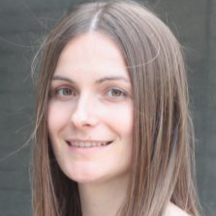The five-week summer modules are designed to help you feel confident in starting university this fall. Each module will cover the core concepts and material that are required for first year university study. Please note that these courses do not take the place of grade 12 biology, math, physics or chemistry. Instead, they are a review of high school content that is fundamental to succeeding in university-level science courses.
The Science Summer Transition Program has concluded for 2024
The University Experience module is designed to help you develop and/or enhance the essential skills you will use in most of your university courses.
In this module you will learn about:
- Note-taking and academic reading;
- Effective studying and the myths of multi-tasking;
- Maintaining academic integrity in class and online;
- Writing and research strategies; and
- How to communicate professionally with instructors and peers
By the end of this module, you will:
- improve your academic reading capabilities;
- develop strategies for effective note-taking;
- explore alternatives to multitasking (i.e. Pomodoro Technique);
- understand universal elements of effective writing and communication;
- know how to identify, validate, cite and paraphrase research sources; and
- understand the importance of academic integrity.
Language of Instruction: English
Dates: Every Wednesday from July 17 to August 14, 2024
Time: 1:00 PM - 4:00 PM (EST)
Duration: 5 weeks; 15 hours
REGISTRATION DEADLINE: Tuesday, July 9
Fee: A refundable $50 attendance deposit will be posted to registrants’ York University student accounts. The deposit will be reversed upon successful completion of 80% of the module.

Instructor: Vera Pavri, PhD
Vera Pavri received her PhD in the History of Science and Technology at the University of Toronto. She is the Chair of the Science, Technology and Society (STS) Department and an Associate Professor (Teaching Stream) in Natural Science (NATS).
She currently teaches a variety of NATS courses including Technology and Civilization, Computers, Information and Society and Understanding Cyberspace.
Dr. Pavri’s research interests include studying how socio-cultural values shape our digital environments (including AI), and how these systems have helped transform the way we work, play, communicate, think and process information. Some of her articles have been published in journals such as Technology and Culture; Vaccine; Journal of Computer Mediated Communication; and Journal of the American Medical Association
This module will provide you with a review of major concepts in biology that you will see on a university syllabus. Refresh your familiarity with the materials through self-assessment activities, tests and fun games.
In this module you will learn about:
Week 1: Biological macromolecules I [Carbohydrates & Proteins]
Week 2: Biological macromolecules II [Lipids & Nucleic acids]
Week 3: Cell Biology [Prokaryote vs Eukaryote cell structure, Mitosis, Meiosis]
Week 4: Molecular Biology [Eukaryotic DNA Replication, Transcription, Translation]
Week 5: Evolution - natural selection, adaptation, convergent and divergent evolution
By the end of this module, you will:
- have reviewed all major concepts in biology at the intersection of high school and an undergraduate syllabus;
- gain exposure to university-style lectures, assessments and course materials;
- feel comfortable with your module materials with the help of lecture notes and resources; and
- have enhanced your performance and self confidence in the subject material.
Language of Instruction: English
Dates: Every Tuesday and Thursday from July 16 to August 15, 2024
Time: 1:30 PM - 2:30 PM (EST)
Duration: 5 weeks; 15 hours
REGISTRATION DEADLINE: Tuesday, July 9
Fee: A refundable $50 attendance deposit will be posted to registrants’ York University student accounts. The deposit will be reversed upon successful completion of 80% of the module.

Instructor: Robert Lakin, PhD
Robert Lakin received his PhD in Exercise Sciences at the University of Toronto. He is currently a Canadian Institutes of Health Research (CIHR)-funded Postdoctoral Fellow in the Department of Biology where his research focuses on the mechanisms underlying remodeling of the heart that lead to problems with the rate or rhythm of heartbeats.
His interest in education dates to his PhD, where he worked with graduate students and Faculty to design assignments and teaching strategies to help transition students to university, with a focus on writing and learning skill development. He currently teaches a 4th year course in the Department of Biology looking at the cellular and molecular basis of muscle physiology.
In his spare time, he is an avid reader, movie watcher, and sports fan, and is excited to share his love of Biology with the incoming undergraduate class.
This module will offer students a comprehensive review of high school material that will not be explicitly covered in courses, but will be fundamental to succeed in first-year university chemistry courses.
In this module you will learn about:
Week 1: Experimentation and Measurement
Week 2: Atoms and Elements
Week 3: Molecules, Compounds and Nomenclature
Week 4: Chemical Reactions and Stoichiometry
Week 5: Reactions in Aqueous Solution
By the end of this module, you will:
- have a deeper understanding of chemistry fundamentals;
- have reviewed atomic theory, chemical bonding, molecules and compounds, chemical reactions and stoichiometry, solutions and solubility, precipitation reactions, acid-base reactions and oxidation-reduction reactions; and
- have developed systematic problem-solving skills.
Language of Instruction: English
Dates: Every Tuesday and Thursday from July 16 to August 15, 2024
Time: 10:30 AM - 12:00 PM (EST)
Duration: 5 weeks; 15 hours
REGISTRATION DEADLINE: Tuesday, July 9
Fee: A refundable $50 attendance deposit will be posted to registrants’ York University student accounts. The deposit will be reversed upon successful completion of 80% of the module.

Instructor: Tihana Mirkovic, PhD
Tihana Mirkovic joined the Department of Chemistry in July 2019 as an assistant professor. She received a PhD in physical chemistry from the University of Toronto, where her interdisciplinary research encompassed the development of nanomaterials and studies of photophysical and dynamical aspects of nanoscale systems.
Her interest in education spans beyond the classroom, as she has been involved in a number of outreach programs, most notably as a senior mentor for the Canadian Chemistry Olympiad and as a volunteer for Pueblo Science, a non-profit organization aiming to increase science literacy in developing countries.
This module is designed to strengthen foundational mathematics skills in preparation for further courses in mathematics that will assume effective mathematical communication, appropriate problem-solving strategies, strong and personalized study skills and confidence with high school mathematical topics.
In this module you will learn about:
Week 1: Exponents, factoring and rational expressions
Week 2: Linear and quadratic equations and inequalities
Week 3: Exponential and logarithmic functions
Week 4: Trigonometry
Week 5: Logic and effective representation and communication of mathematics
By the end of this module, you will:
- demonstrate knowledge of fundamental math topics like exponents, algebra, exponential and logarithmic functions, trigonometry and mathematical logic;
- confidently communicate mathematical concepts orally, visually and in written form; and
- have reflected on your mathematical skills and created a plan to succeed in first-year math courses.
Language of Instruction: English
Dates: Every Tuesday and Thursday from July 16 to August 15, 2024
Time: 9:00 AM - 10:30 AM (EST)
Duration: 5 weeks; 15 hours
REGISTRATION DEADLINE: Tuesday, July 9
Fee: A refundable $50 attendance deposit will be posted to registrants’ York University student accounts. The deposit will be reversed upon successful completion of 80% of the module.

Instructor: Andrew Skelton, PhD
Andrew is an Assistant Professor in the Department of Mathematics and Statistics. He is a former high school math teacher and worked at two other Ontario universities before arriving at York University in 2018.
He is the coordinator of the undergraduate Mathematics for Education program and the Academic Program Director at Bethune College where he oversees a team of over 150 peer mentors, tutors and advisors. His primary research interests are the transition to university, the first-year experience and the training and coaching of peer leaders.
In his spare time, he is an avid curler, tennis and soccer fan, board game aficionado, cat lover and he played his first video game just five years ago.
This module will provide an overview of fundamental physics subjects to prepare you for first year.
In this module you will learn about:
Week 1: 1-Dimensional (1D) motion
Week 2: Conservation and relationships in energy and momentum; Rotational energy & torque
Week 3: Graphing in linear motion, including interpretation of graphical data with calculus
Week 4: Astronomy, Newtonian gravitation and orbital motion
Week 5: Introduction to waves and oscillatory motion. Sound and linearly polarized light will be used in a series of demonstrations
By the end of this module, you will:
- demonstrate knowledge of fundamental physics topics like 1-Dimensional motion, rotational energy and torque, linear and orbital motion, and Newtonian gravitation; and
- confidently communicate foundational physics concepts
Language of Instruction: English
Dates: Every Tuesday and Thursday from July 16 to August 15, 2024
Time: 2:30 PM - 4:00 PM (EST)
Duration: 5 weeks; 15 hours
REGISTRATION DEADLINE: Tuesday, July 9
Fee: A refundable $50 attendance deposit will be posted to registrants’ York University student accounts. The deposit will be reversed upon successful completion of 80% of the module.

Instructor: Banafsheh Hashemi Pour, PhD
Banafsheh Hashemi Pour obtained her PhD in physics and astronomy at York University. Her research was multi-scale modeling of molecules and continuum mechanics using bridging scale method for characterizing innovative nanoscale materials with application in aerospace and space engineering.
She is now teaching in physics and astronomy department as well as Natural Science division with the focus on fundamental physics courses such as Phys 1411: Physics fundamental 1, Phys 1421: Physics with life science application, Phys 1800: Engineering mechanics, Phys 1801: Electricity, Magnetism and optics for engineers and Phys 1510: Introduction to physics.
Module Delivery Format
The Science Summer Transition modules will be delivered in a purely remote and synchronous form. To complete these modules, you will need to meet the following technical requirements:
- an internet connection that can support video streaming: broadband wired or wireless (at least 3G or 4G/LTE);
- an internet browser (IE 11+, Edge 12+, Firefox 27+, Chrome 30+ or Safari 7+);
- a laptop or desktop computer with speakers and a microphone; and
- a webcam or HD cam or HD camcorder with video capture card.
Additional technical recommendations
- Minimum recommended processor:
- single core 1Ghz or higher
- dual core 2Ghz or higher (i3/i5/i7 or AMD equivalent) with 4GB RAM
- Recommended operating system:
- macOS X with macOS 10.9 or later
Click to view FAQs about the SSTP program
Still have questions? Contact science@yorku.ca
These modules are part of the Science Summer Transition Program: Transition to University Success. To learn more, visit the program website.
